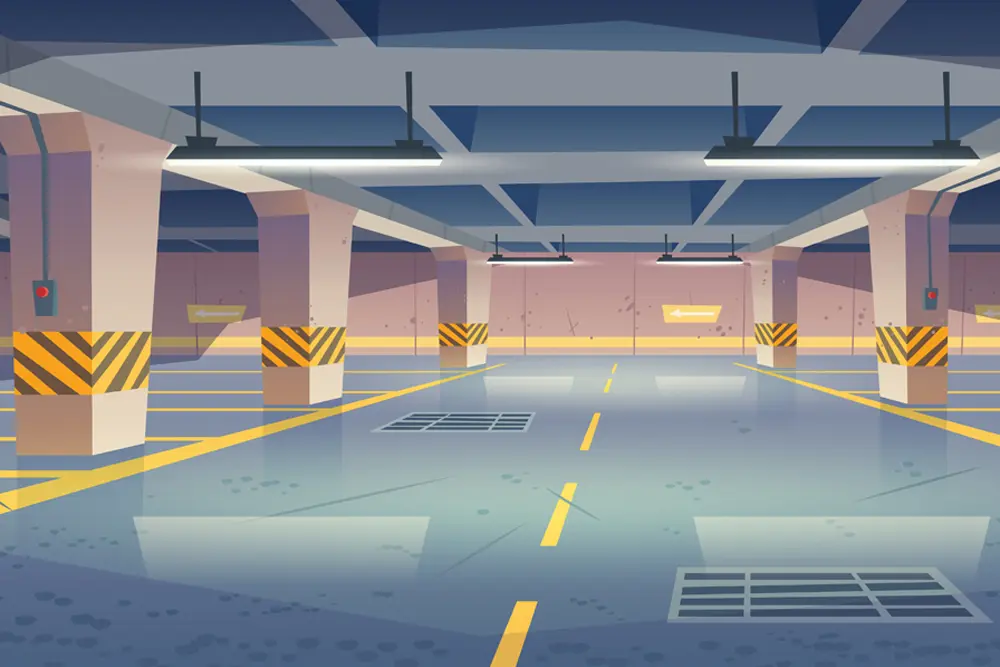The Pros and Cons of Concrete Flooring
Concrete has been used as a flooring material for many years, but most people consider it suitable only for industrial environments. The dull grey paving stones or blocks are commonly seen in outdoor spaces or on the floors of car parks and garages in commercial buildings and shopping malls.
These plain concrete slabs have served as the flooring material for basements, garages, patios, and utility areas for many years. But concrete is now also a viable material in home interiors, where it can be polished, etched, or stained to serve as the finishing flooring surfaces.
The many advantages of concrete as a decorative flooring material may come as a surprise if you are used to thinking of concrete as suitable only for utilitarian surfaces. Concrete may not be the best stylistic fit for every home, but for those looking for it, concrete can make some of the most exotic, colorful floors you have ever seen. And, as with other flooring materials, the techniques of installing and decorating concrete floors has evolved over the years, making it a versatile material that adapts to almost any design or budget.
Advantages of Concrete Floors
Concrete floors are durable
There’s a reason why concrete is used in industrial environments and commercial establishments with high traffic. The material is extremely resilient and can withstand almost anything, whether it’s heavy furniture, high temperature, or the risk of scratches on its surface from pointed heels or pets’ claws. Using polished concrete floors inside a house guarantees peace of mind as it will last for years with very little maintenance, unlike other materials such as vinyl, ceramic or wooden floors that are more prone to scratches, cracks, and tears, which require them to be replaced every few years.
Concrete floors are low-maintenance
The same properties that make concrete floors so durable also make them easy to care for. Properly sealed concrete floors shrug off dirt, grit, stains, spills, and hard impacts. A little sweeping and damp mopping is all that’s required to keep them looking like new.
Concrete floors have beautiful design options
Modern techniques for concrete finishing have moved concrete floors from ho-hum to luxurious. Dyes added as the wet concrete is being mixed produces concrete in a huge range of earthy colors. Surface treatments such as acid stains, concrete stains, and paint made for concrete floors turn plain concrete into beautiful, one-of-a-kind finishes. Also, concrete can be stamped with rubber stencils to give it texture. Combined with the right dyes or coloring agents, finished concrete can be made to mimic ceramic tile, natural stone, brick, even dirt!
Concrete and heated floors
For new construction or for concrete poured over an existing slab, you have the option to add radiant heat — electrical cables or hot water tubes embedded in the concrete to create warm, comfy floors.
Disadvantages of Concrete Floors
Concrete floors are hard
There’s no denying that concrete is hard underfoot, a quality that some find uncomfortable. It’s also unforgiving — a dropped glass definitely won’t survive — and it may be a concern if there are small children or elderly folks in the household. Area rugs can help alleviate concerns.
Concrete floors can collect moisture
In below-grade basements, moisture migrating up from underneath the slab may make concrete unacceptably damp and damage any surface treatments, such as paint. Proper sealing of the concrete helps, as does mitigation of any outside problem areas like leaky gutters and poor soil drainage.
Concrete floors can crack
Like it or not, even expertly installed concrete may develop cracks over time. That’s because the large expanse of a slab has to endure changes in temperature, moisture, and settling. Colored cement paste and patching materials help disguise cracks.
Concrete floors are environmentally suspect
While concrete itself is an inert, biodegradable material, the process of making cement requires a lot of energy and produces carbon dioxide. Compared to other building materials such as steel, wood, and glass, concrete has by far the most embodied energy.

